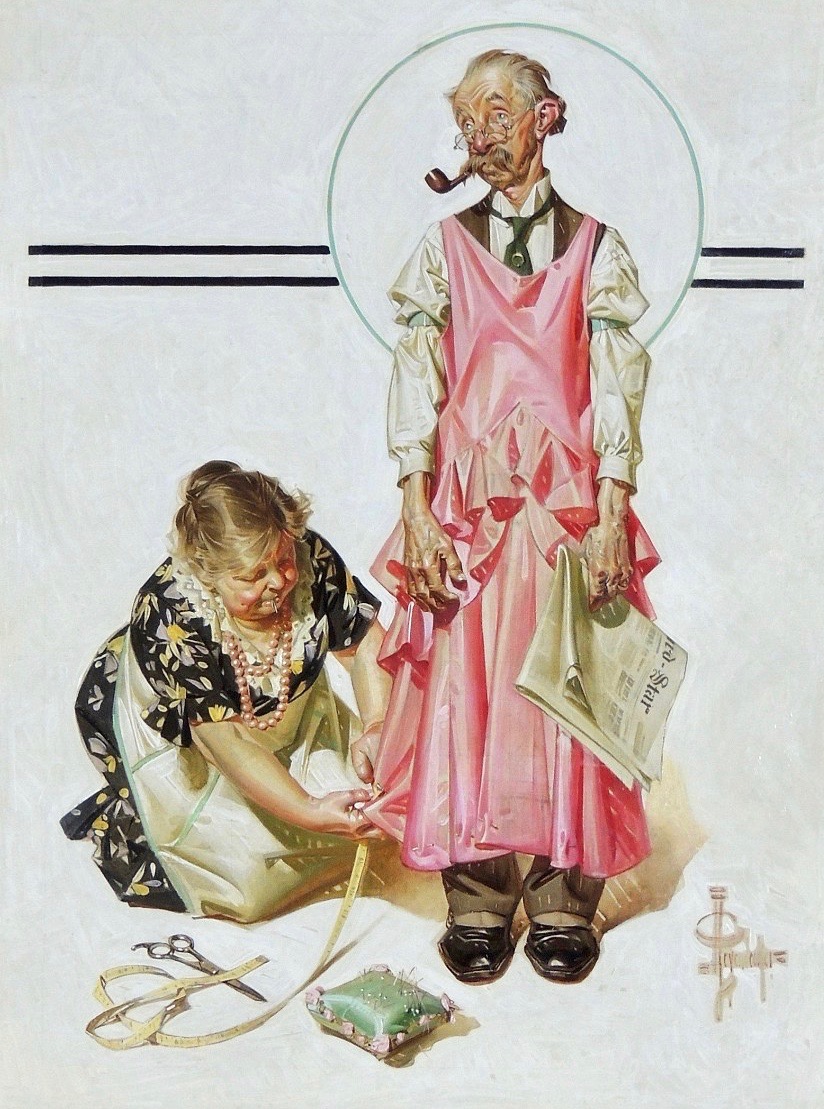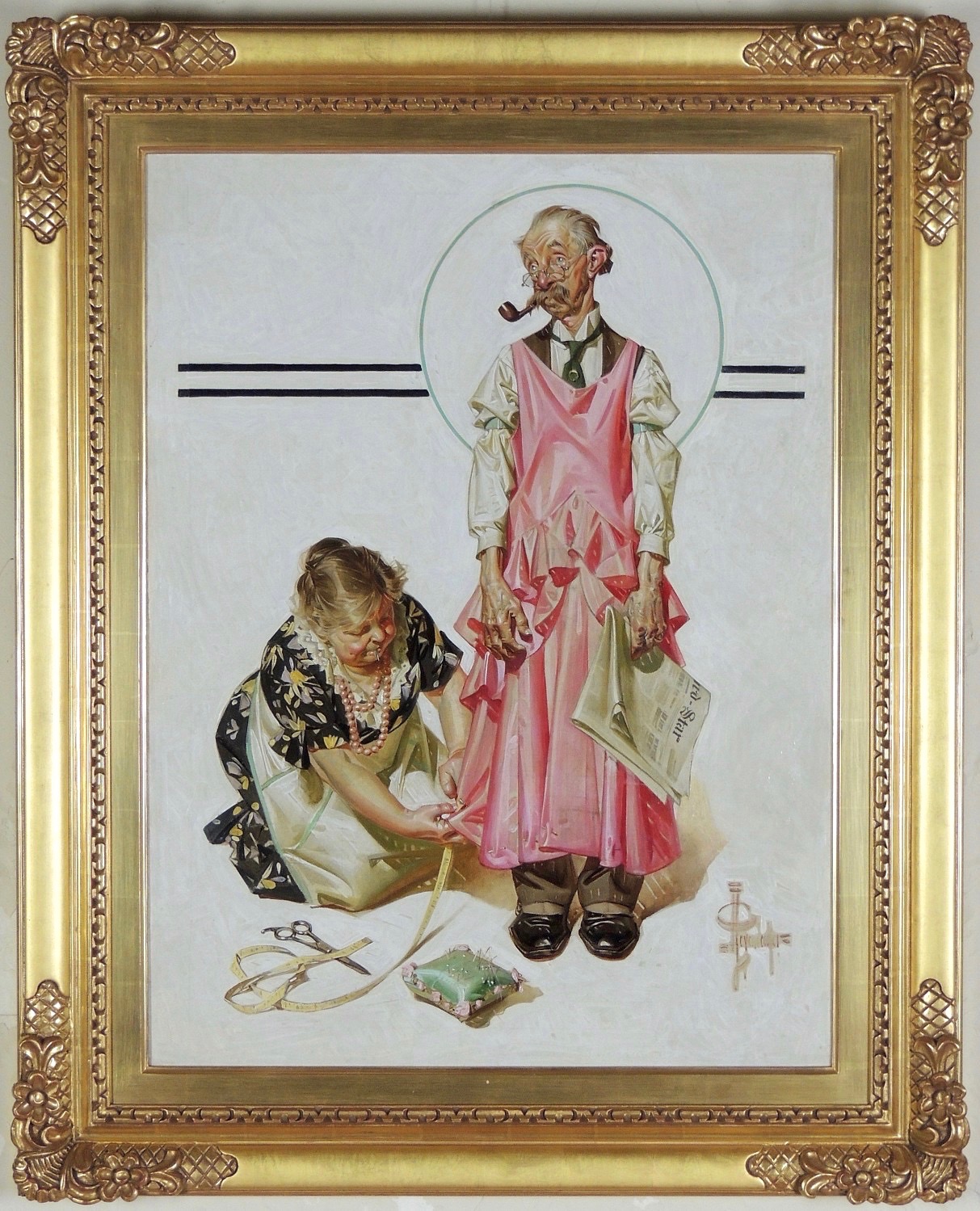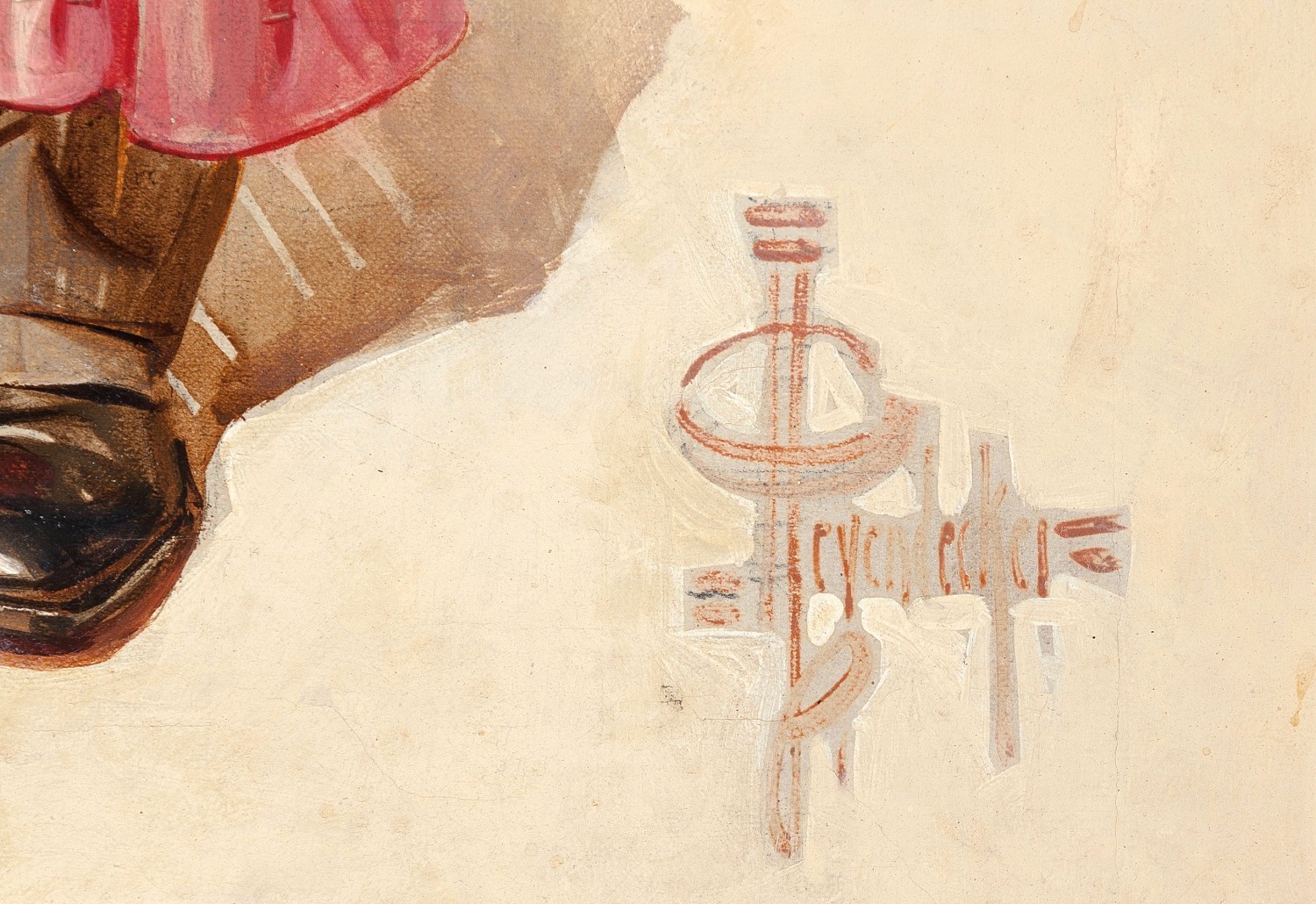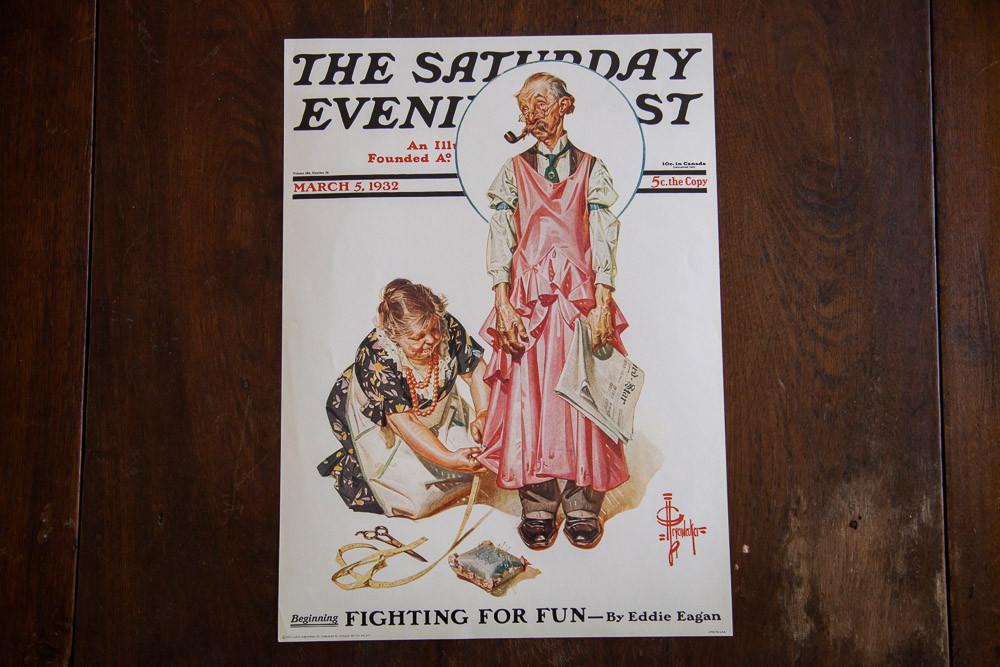"Living Mannequin, The Saturday Evening Post cover, March 5, 1932" Lot no. 3586
By Joseph Christian Leyendecker (1874-1951)
1932
32.00 x 24.25"
Oil on Canvas
Signed Lower Right: JCLeyendecker
REQUEST PRICE
PURCHASE REQUEST
Living Mannequin sold at the U.S. War Bond at the United States Treasury-Saturday Evening Post War Bond Show. This event toured sixteen cities with over 1.2 million attendees and featured Norman Rockwell's Four Freedoms, inspiring donations and enlistments as well as numerous other famous Saturday Evening Post illustrations. At this specific show in Pittsburgh, Pennsylvania, it was an all-day event including a parade through the Golden Triangle, a vaudeville show, and numerous celebrities in attendance including Mickey Rooney, Judy Garland, Fred Astaire, and Lucille Ball. At Pittsburgh alone, The Saturday Evening Post War Bond Show raised an astounding $87 million, the equivalent of $1.1 billion today. This active relationship of illustrations, the publications, and the general population highlights the importance and influence of illustrators during this pivotal moment in United States history.
Explore related art collections: $100,000 & Above / Saturday Evening Post Covers / Magazine Covers
See all original artwork by Joseph Christian Leyendecker
ABOUT THE ARTIST
Joseph Christian Leyendecker was born in Montabaur, Germany, and came to America at the age of eight. Showing an early interest in painting, he got his first job at 16 in a Chicago engraving house on the strength of some larger pictures he had painted on kitchen oilcloth. In the evenings after work, he studied under Vanderpoel at the Chicago Art Institute, and saved for five years to be able to go to France and attend the Academie Julian in Paris.
Upon his return, as a thoroughly trained artist with immense technical facility, Leyendecker had no difficulty in obtaining top commissions for advertising illustrations and cover designs for the leading publications. His first Post cover was done in 1899, and he did well over 300 more during the next 40 years. Among the most famous of these was his annual New Years Baby series.
His advertising illustrations made his clients famous. The Arrow Collar Man was a byword for the debonair, handsome male, and women wrote thousands of love letters to him in care of Cluett Peabody & Company. His illustrations for Kuppenheimer Clothes were equally successful in promoting an image of suited elegance. He was elected to the Society of Illustrators Hall of Fame in 1977.A major retrospective exhibition of Leyendecker's work was mounted at the Norman Rockwell Museum in Stockbridge, Massachusetts, in 1997-98.
Joseph Christian Leyendecker was born in Montabaur, Germany, and came to America at the age of eight. Showing an early interest in painting, he got his first job at 16 in a Chicago engraving house on the strength of some larger pictures he had painted on kitchen oilcloth. In the evenings after work, he studied under Vanderpoel at the Chicago Art Institute, and saved for five years to be able to go to France and attend the Academie Julian in Paris.
Upon his return, as a thoroughly trained artist with immense technical facility, Leyendecker had no difficulty in obtaining top commissions for advertising illustrations and cover designs for the leading publications. His first Post cover was done in 1899, and he did well over 300 more during the next 40 years. Among the most famous of these was his annual New Years Baby series.
His advertising illustrations made his clients famous. The Arrow Collar Man was a byword for the debonair, handsome male, and women wrote thousands of love letters to him in care of Cluett Peabody & Company. His illustrations for Kuppenheimer Clothes were equally successful in promoting an image of suited elegance. He was elected to the Society of Illustrators Hall of Fame in 1977.A major retrospective exhibition of Leyendecker's work was mounted at the Norman Rockwell Museum in Stockbridge, Massachusetts, in 1997-98.
Kent Steine







